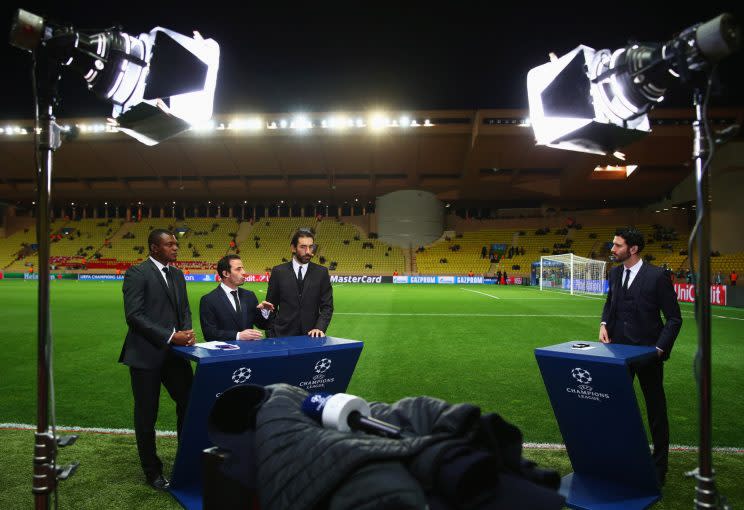Good news! You'll soon be able to watch even more Champions League games

It is possible to watch all 125 games of the Champions League season on television in the United States, but there is always one problem: far too many of the games take place simultaneously.
During the group stage, there are typically eight games being played at the same time on any given day. Usually, Fox Sports will pick two of these games to show on FS1 and FS2—making it statistically likely that you miss out on most of the live action on each match day.
The folks at Fox have nobly tried to combat this FOMO issue with the Redzone-style programming of Fox Soccer Plus’ Multimatch 90. But from the 2018-19 season, fans will be given the opportunity to watch live games back-to-back with the introduction of “double header” nights.
On Monday, the UK Champions League broadcaster BT Sport announced they had renewed the rights to the competition to the tune of £1.2bn ($1.5bn). The deal, which will extend their coverage to 2021, will also introduce staggered kick-off times in the group stages:
Fans will also be able to enjoy UEFA Champions League ‘double header’ nights, as live matches will kick off at both 6pm and 8pm during the Group Stage.
Taking a lead from the Europa League, which already staggers kick-offs to maximize viewership, UEFA have agreed to stage two separate kick-off times for group stage games from 2018: the first will be at 1pm ET and the second at 3pm ET.

This change may wreak havoc with your working day, but it will mean that the broadcast rights holders will now be able to screen twice as many live games during the group stage.
That broadcast rights holder in the US, however, will not be Fox. From 2018-19, Turner Sports and Univision will be taking on Champions League broadcast responsibilities, after bidding nearly $300m for the rights.
It’s the biggest ever deal for European soccer rights in the United States, but the figure still represents less than 25% of what BT Sport paid for their UK deal.
According to Sports Business Daily, Turner outbid Fox and NBC for the rights, while ESPN declined to make an offer.
Turner’s last foray in the world of soccer broadcasting was 27 years ago at the 1990 World Cup, so it is difficult to say what they will bring to the table—or why they pulled up a chair at the table in the first place. And it is difficult to say exactly which channels they will use to show the games.
From 2018, it is likely that the average American armchair fan will have to navigate NBC, Fox, ESPN, beIN Sports, A+E Networks, Univision and Turner to keep up with the beautiful game.
That sounds like an expensive cable package.
However, “double-header” nights will certainly be advantageous for TV viewers. And it is worth noting that the increasing value of broadcast rights packages, plus the amount of networks involved in those packages, are both very positive indicators of the health of soccer in the US.



